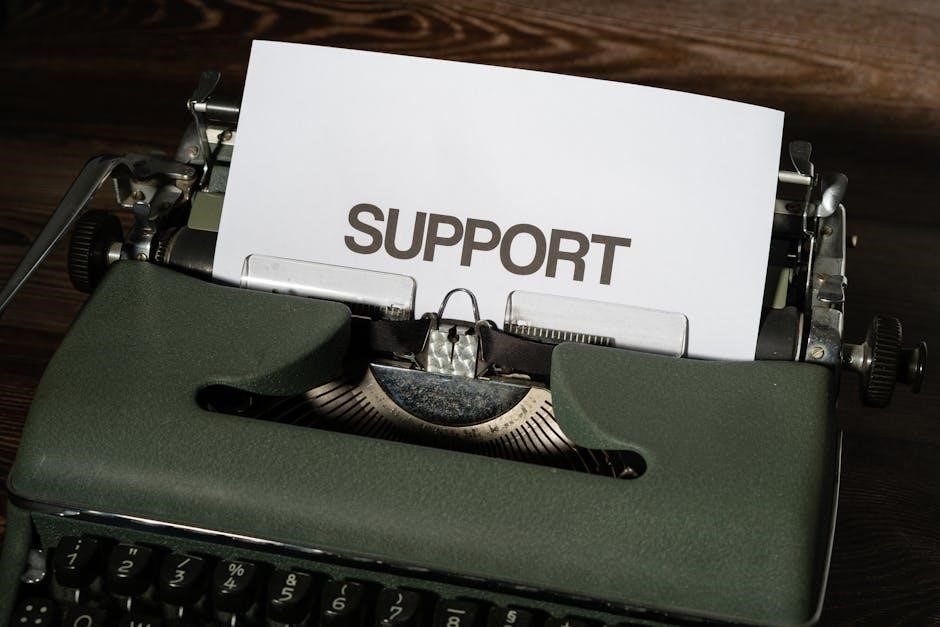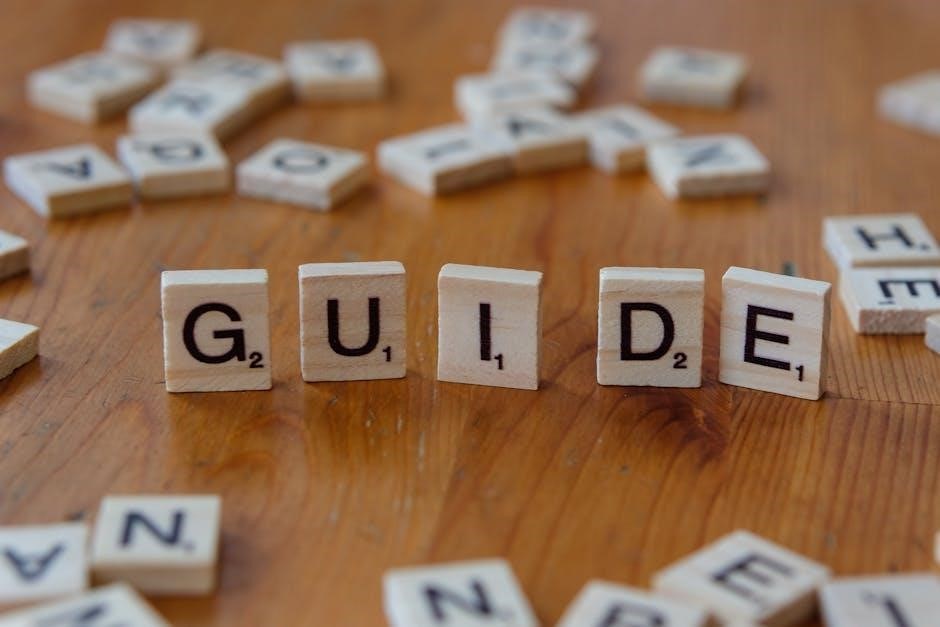
prisoners self help litigation manual
The Prisoners Self-Help Litigation Manual is a comprehensive guide designed to empower prisoners and their advocates with legal knowledge and tools to protect their rights. Written in clear, accessible language, it covers essential topics such as conditions of confinement, civil liberties, and procedural due process, providing practical advice for navigating the legal system. This indispensable resource is tailored to help individuals understand and assert their rights effectively, ensuring access to justice even behind bars.

1.1 Purpose and Importance of the Manual
The Prisoners Self-Help Litigation Manual serves as a legal toolkit for prisoners and advocates, providing clear guidance on understanding and asserting rights guaranteed by law. Its purpose is to empower individuals with practical knowledge to navigate the complexities of the legal system, challenge unjust conditions, and seek remedies for violations of their rights. By offering detailed insights into legal procedures and strategies, the manual ensures that prisoners are equipped to advocate for themselves effectively, bridging the gap between legal theory and real-world application to secure justice and dignity.
1.2 Overview of the Fourth Edition

The fourth edition of the Prisoners Self-Help Litigation Manual offers a comprehensive and updated guide for prisoners and advocates, providing detailed insights into legal rights and remedies. This edition expands on key topics such as conditions of confinement, civil liberties, and procedural due process, ensuring clarity and accessibility; It includes practical advice on legal research, writing, and litigation strategies, making it an essential resource for those seeking to navigate the legal system effectively. The manual remains a vital tool for empowerment and justice, tailored to meet the evolving needs of its readers.

Key Legal Rights of Prisoners
The Prisoners Self-Help Litigation Manual outlines essential rights, including conditions of confinement, civil liberties, and procedural due process, ensuring prisoners understand and can assert their legal protections effectively.
2.1 Conditions of Confinement
The Prisoners Self-Help Litigation Manual details the legal standards governing conditions of confinement, ensuring prisoners are aware of their rights regarding overcrowding, sanitation, and safety. It provides guidance on challenging unconstitutional living conditions, such as inadequate housing, poor hygiene facilities, and excessive noise. The manual emphasizes the importance of understanding these standards to file effective grievances or lawsuits. By outlining actionable steps, it empowers prisoners to address violations of their basic human rights and seek remedies through the legal system, ensuring dignity and humane treatment are upheld.
2.2 Civil Liberties in Prison
The Prisoners Self-Help Litigation Manual addresses the protection of civil liberties in prison, including freedom of speech, religious freedom, and protection from racial or gender discrimination. It outlines the legal frameworks, such as the First and Eighth Amendments, that safeguard these rights. The manual provides practical guidance on filing grievances and legal challenges to address violations. By empowering prisoners with knowledge, it helps them assert their rights and seek remedies for unlawful restrictions on their liberties, ensuring dignity and justice are upheld even within the prison system.
2.3 Procedural Due Process in Prison
The Prisoners Self-Help Litigation Manual explains procedural due process rights, ensuring prisoners are treated fairly in disciplinary hearings and other administrative actions. It details the legal protections against arbitrary or unjust decisions, such as the right to notice, evidence, and an opportunity to present a defense. The manual provides clear guidance on how to challenge violations of due process, helping prisoners understand and enforce their rights effectively. This section empowers individuals to navigate the legal system confidently, ensuring their rights are respected throughout their incarceration.
Understanding the Legal System
The Prisoners Self-Help Litigation Manual introduces prisoners to the basics of the legal system, including civil litigation and legal research, empowering them with practical knowledge to navigate courts effectively.
The Prisoners Self-Help Litigation Manual provides a foundational understanding of civil litigation, enabling prisoners to navigate legal disputes and seek remedies for rights violations. It explains key concepts such as filing complaints, evidentiary requirements, and court procedures, tailored to the unique challenges faced by incarcerated individuals. The manual emphasizes practical steps to pursue justice, ensuring prisoners can advocate for themselves effectively within the civil legal system. This section equips readers with the knowledge to address grievances related to prison conditions, treatment, and constitutional rights. Clear guidance is provided to empower self-representation.
3.2 Legal Research for Prisoners
The Prisoners Self-Help Litigation Manual equips prisoners with essential tools for conducting legal research, a critical skill for asserting rights and challenging unjust conditions. It guides readers through accessing and interpreting case law, statutes, and constitutional provisions relevant to their situations. The manual emphasizes practical steps for locating legal materials, understanding legal terminology, and applying the law to specific circumstances. By demystifying the legal research process, it empowers prisoners to advocate effectively for their rights, even without formal legal training or external assistance. This section is vital for self-advocacy.

Litigating Specific Claims
This section provides detailed guidance on litigating specific claims, including Section 1983 actions and Habeas Corpus petitions, empowering prisoners to challenge violations of their rights effectively through the courts.

4.1 Section 1983 Actions
Section 1983 actions allow prisoners to sue for violations of their constitutional rights by state actors. The manual provides step-by-step guidance on filing and litigating these claims, ensuring prisoners understand the legal requirements and procedures. It covers essential elements, such as proving a deprivation of rights and establishing liability. Practical advice on drafting complaints, gathering evidence, and navigating court procedures empowers prisoners to assert their rights effectively. This section is crucial for those seeking justice for unlawful treatment or conditions within correctional facilities, offering clear pathways to challenge systemic injustices.
4.2 Habeas Corpus and Post-Conviction Remedies
Habeas corpus is a critical legal remedy for prisoners challenging the legality of their detention or conviction. The manual provides detailed guidance on filing habeas corpus petitions and pursuing post-conviction remedies, including procedural requirements and substantive legal standards. It explains how to identify and challenge constitutional violations, such as ineffective assistance of counsel or prosecutorial misconduct. Practical advice on gathering evidence, drafting legal arguments, and navigating appellate processes ensures prisoners can effectively assert their rights and seek relief from unjust convictions or sentences. This section is vital for those seeking to overturn wrongful convictions or address unlawful imprisonment.
Practical Legal Skills
This section equips prisoners with essential legal skills, including drafting pleadings, conducting legal research, and understanding court procedures, empowering them to navigate the legal system effectively.
5.1 Legal Writing and Drafting
The manual provides detailed guidance on legal writing and drafting, empowering prisoners to craft clear, effective legal documents. It emphasizes proper structure, clarity, and persuasive arguments, ensuring that prisoners can communicate their claims effectively in court. By mastering these skills, individuals can draft pleadings, motions, and appeals with precision, advocating for their rights and navigating the legal system successfully. This section is essential for prisoners seeking to present compelling cases and protect their rights through effective legal communication.
5.2 Motion Practice and Court Procedures
This section provides step-by-step guidance on motion practice and court procedures, enabling prisoners to navigate the legal process effectively. It explains how to file motions, respond to opposing counsel, and comply with court rules and deadlines. Clear instructions on formatting, serving documents, and understanding courtroom etiquette are included, ensuring prisoners can present their cases professionally. Mastering these procedures is crucial for advocating successfully and asserting rights within the judicial system, making this section a vital tool for self-representation and legal empowerment.

Personal Safety and Rights in Prison
This section offers strategies to ensure personal safety and protect rights, addressing violations and providing guidance on legal recourse to maintain dignity and security while incarcerated.
6.1 Protecting Yourself in Prison
Protecting yourself in prison requires a combination of awareness, strategic behavior, and legal knowledge. Understanding your rights and the legal framework surrounding prison conditions is crucial. Avoid confrontations, document incidents, and seek legal recourse when necessary. Stay informed about policies and procedures to navigate the system effectively. Building a support network, both inside and outside the prison, can also enhance your safety. Utilize resources like the Prisoners Self-Help Litigation Manual to empower yourself with the tools needed to address violations and ensure your well-being while incarcerated.

6.2 Religious Freedom and Practice
Prisoners have the right to practice their religion freely, protected under the First Amendment and the Religious Land Use and Institutionalized Persons Act (RLUIPA). The Prisoners Self-Help Litigation Manual provides guidance on asserting these rights, including access to religious materials, diets, and services. It outlines legal protections against discrimination and interference with religious practices. Understanding these laws empowers prisoners to challenge violations and ensure their religious freedom is respected while incarcerated, maintaining dignity and spiritual well-being despite confinement.
The Role of Advocates and Supporters
The Prisoners Self-Help Litigation Manual emphasizes the crucial role of advocates and supporters in empowering prisoners. They provide legal guidance, emotional support, and assistance in navigating complex legal processes, ensuring prisoners’ rights are protected and their voices heard. This collaboration fosters resilience and access to justice, making advocates indispensable allies in the pursuit of fairness and equality within the criminal justice system.
7.1 How Advocates Can Assist Prisoners

Advocates play a vital role in supporting prisoners by providing legal guidance, emotional support, and access to resources. They can assist with legal research, drafting documents, and understanding complex legal procedures. Advocates also help prisoners navigate the challenges of self-representation, ensuring their rights are protected. By offering clear explanations of legal concepts and procedures, advocates empower prisoners to assert their rights effectively. Their support extends beyond legal aid, fostering resilience and hope for those navigating the criminal justice system. This collaboration is essential for achieving justice and fairness behind bars.
7.2 Resources for Prisoner Advocacy
Prisoner advocates can utilize the Prisoners Self-Help Litigation Manual as a primary resource to guide their support efforts. The manual provides detailed instructions on legal research, drafting motions, and understanding court procedures. Advocates can also access online legal databases, non-profit organizations, and legal clinics specializing in prisoner rights. Additionally, training programs and workshops offer skills to effectively assist prisoners in navigating the legal system. These resources empower advocates to provide informed support, ensuring prisoners’ rights are protected and their voices heard in the justice system.
Impact and Reviews of the Manual
The Prisoners Self-Help Litigation Manual has received widespread acclaim for its transformative impact, empowering prisoners with legal knowledge and hope. Many reviewers praise its clarity and effectiveness in aiding self-advocacy, while some prisons have banned it due to its potent tools for challenging injustices. Customers highlight its value as a life-changing resource, enabling individuals to navigate the legal system and protect their rights successfully.
8.1 Customer Testimonials and Success Stories
Customers praise the Prisoners Self-Help Litigation Manual for its life-changing impact. One reviewer described it as the “most life-changing book” they’ve encountered, providing hope and practical guidance. Others highlight its effectiveness in aiding self-representation, with one individual successfully suing a facility and the state. The manual’s clarity and comprehensive coverage have empowered many to navigate the legal system confidently. Despite its success, some prisons have banned it, underscoring its potential to challenge injustices. These testimonials underscore its value as an essential tool for asserting rights and achieving justice.
8.2 Critical Acclaim and Recommendations
The Prisoners Self-Help Litigation Manual has received widespread critical acclaim for its thorough and accessible approach to legal education. With a 4.6-star rating and over 419 reviews, it is highly recommended by legal experts and educators. Reviewers praise its clarity, depth, and practicality, making it an essential resource for understanding legal rights. Often endorsed as a must-have for both prisoners and legal professionals, the manual is frequently compared to other seminal works in the field, further solidifying its reputation as a cornerstone of prisoner advocacy and legal empowerment.
The Prisoners Self-Help Litigation Manual stands as a vital tool for empowerment, guiding prisoners and advocates in asserting rights and seeking justice. Its impact extends beyond legal matters, fostering resilience and hope for transformation.
9.1 The Broader Relevance of the Manual
The Prisoners Self-Help Litigation Manual extends beyond its primary audience, offering a foundational understanding of legal rights and procedures for anyone interested in American law. Its detailed coverage of topics like legal research, civil liberties, and procedural due process makes it a valuable resource for both prisoners and free individuals. By empowering individuals with knowledge, the manual bridges the gap between legal theory and practical application, fostering a deeper understanding of justice and rights. Its relevance spans beyond prison walls, serving as a tool for education and advocacy.
9.2 Final Thoughts on Empowerment Through Legal Knowledge

The Prisoners Self-Help Litigation Manual serves as a vital resource for empowerment, equipping individuals with the legal knowledge necessary to navigate the complexities of the justice system. By providing clear, accessible guidance, the manual bridges the gap between legal theory and practical application, enabling prisoners and advocates to challenge rights violations effectively. Its emphasis on education and self-advocacy fosters a sense of autonomy and hope, ultimately contributing to a more just and equitable society. Legal knowledge, as this manual demonstrates, is a powerful tool for transformation and systemic change.